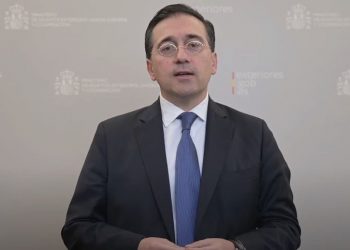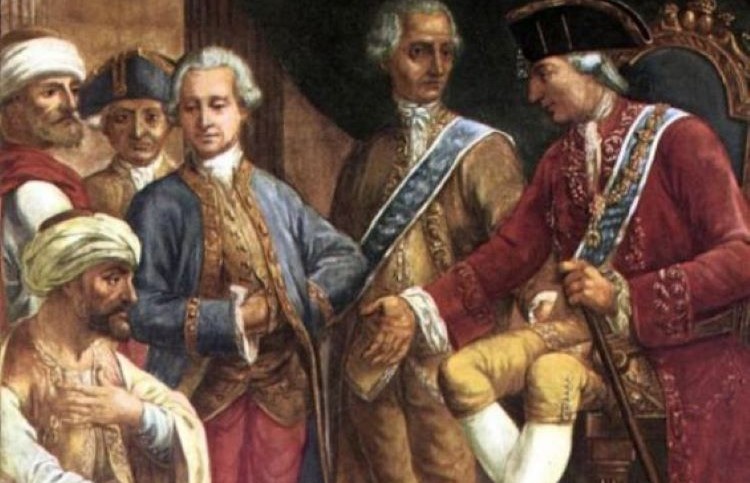The Diplomat
The reform of the Spanish Agency for International Development Cooperation (AECID), the new Statute of the Cooperator and the Regulations of the Diplomatic Career are some of the topics that the department of José Manuel Albares had on its agenda for this year and that the The electoral advance has been disrupted, causing them to be pending until 2024, Europa Press reports.
The Foreign Minister will also have to weather the discontent expressed in recent weeks by numerous diplomats over the appointments that have been made both at the top of the Ministry, where three of the four State Secretaries come from the PSOE, and from politicians to whom have been appointed as ambassadors and that comes to add to that caused by the amnesty law, after the ambassadors were the spearhead abroad to defend the Government’s theses after the 1-O in Catalonia.
The new Law on Cooperation for Sustainable Development, approved by a large majority by Congress and Senate last February, gave the Government a period of six months to implement the reform of the AECID and the Cooperator Statute by royal decree. The dissolution of the Cortes due to the elections of July 23 left the Government in office, making it impossible to act in this area, as well as in the preparation of the royal decree by which the Fund for the Promotion of Development (FONPRODE) will be replaced by the new one Spanish Fund for Sustainable Development (FEDES), also provided for by the new standard.
However, the then State Secretary for International Cooperation, Pilar Cancela, and the director of AECID, Antón Leis, had hoped on October 8, Cooperator’s Day, that all these royal decrees could be presented before the end of the year, once the Government was ratified, as happened on November 16, given that work had continued on drafting the texts.
However, in the past month and a half, none of these royal decrees have been brought to the Council of Ministers by Albares, so we will have to wait until 2024 for this to happen. During this time, in addition, there has been a change in the State Secretariat for International Cooperation, which is now headed by the socialist Eva Granados, who will have to be the one to complete the reform of Spanish Cooperation initiated with the new law.
Regulations of the Diplomatic Career
Another of the pending issues that has not yet completed its processing is the new Regulations of the Diplomatic Career, which when the electoral advance occurred was only in need of approval from the Council of State. Since then, there has been no news, so we can hope that it will be next year when it ends up seeing the light. Its preparation began with Arancha González Laya as minister and is motivated by the decision of the Supreme Court to annul by formal defect the regulation approved in July 2014 by the Government of Mariano Rajoy, understanding that it had not been subject to collective bargaining after the appeal presented by the Independent Union of the State Foreign Service (SISEX).
The objective of the text is to give more transparency and predictability to the appointment of positions abroad, including ambassadors, defining the role of the Diplomatic Career Board. As a general rule, it is this that proposes to the minister on duty a shortlist of candidates to occupy the different positions, including the heads of missions. However, the head of diplomacy usually reserves the appointment of ambassadors from those countries that are considered more important or with which relations are particularly sensitive. This usually happens, for example, with embassies such as the United States or Morocco.
The idea is also to limit the appointment of political ‘ambassadors’, that is, people outside the Diplomatic Career. This issue is especially topical after Albares has appointed two former ministers to serve as mission heads. Thus, Héctor Gómez is the new ambassador to the UN in New York, a position that has never been held before by anyone other than a diplomat, and Miquel Iceta is the ambassador to UNESCO, replacing former minister José Manuel Rodríguez Uribes.
The regulation also seeks to respond to one of the main complaints of diplomats, the advance with which they know their new destinations abroad in order to prepare their transfer there in everything related to moving, housing or searching for educational centers to children.
Discontent among diplomats
It is to be hoped, therefore, that the approval of the expected regulation will somewhat calm the spirits among the members of the Diplomatic Career, who already aired their discomfort in a statement after the appointment of the two former ministers. In it, they lamented that both Gómez and Iceta were people “without any relevant international experience, with the loss that this entails for the image of the country.”
The changes made by Albares in the Foreign Affairs leadership have also been received with astonishment, given the inexperience in international issues of three of the new State Secretaries. Added to this is the fact that these three are also members of the PSOE, a circumstance that had only occurred during the time of Miguel Ángel Moratinos, a diplomat like Albares, at the head of Foreign Affairs.
His ‘number two’ will be Diego Martínez Belío, until now his chief of staff, while the new State Secretary for the EU will be Fernando Sampedro, from the PSOE of Palencia and who now worked in the team of the president of the European Commission. , Ursula von der Leyen. The new State Secretary for Ibero-America will be the socialist deputy Susana Sumelzo, while for the tate Secretary for International Cooperation the person chosen has been the former socialist spokesperson in the Senate Eva Granados.
Albares has come out against the criticism, arguing that it is nothing new that there are politicians heading State Secretariats and also some embassies. “To name or not name, I do not ask anyone about their political ideas, nor about their political card,” the minister said a few days ago. “What I’m looking for is competition, there is no sectarianism,” he said.
Likewise, the proposed amnesty law formulated by the Government within the framework of the agreements with the Catalan independence parties to guarantee their support for the re-election of Pedro Sánchez has been received with incomprehension. The Association of Spanish Diplomats (ADE), the majority among the members of the Diplomatic Career, released a statement in which, although it stopped short of openly criticizing the bill, it valued the work carried out by diplomats since 2017 to counteract the “smear campaign” orchestrated by the independentistas. This task “has been carried out with notable success” and “we diplomats claim it with legitimate pride,” they highlighted.
A good opportunity to smooth over differences and leave discomfort behind could be the ambassadors’ conference that the minister has called for early January and which will bring together all the heads of mission and international organizations.







